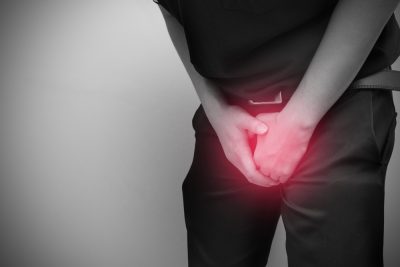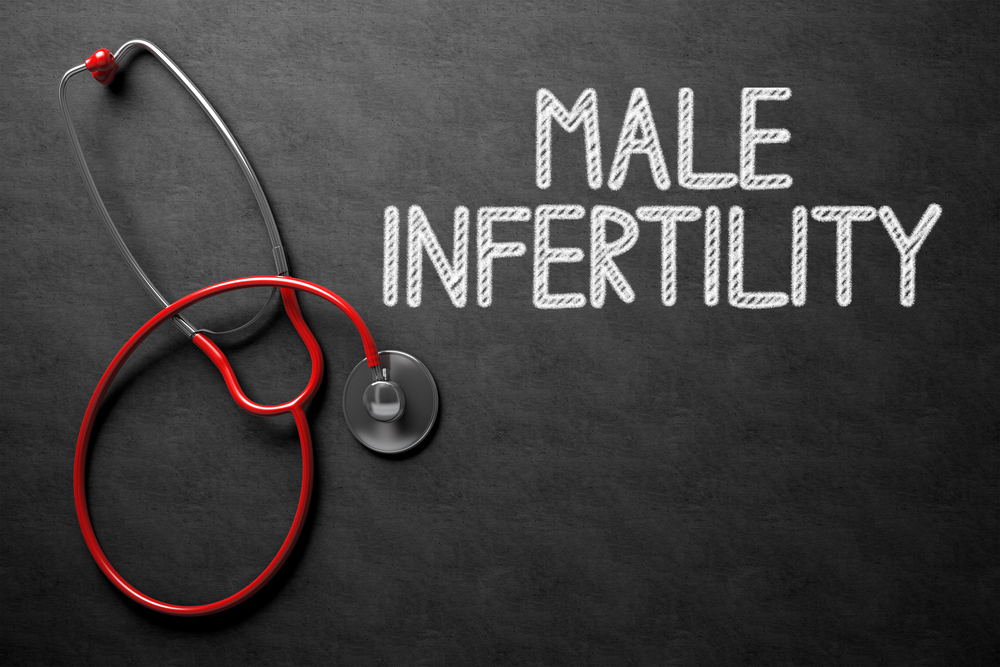Research has shown that up to 15 percent of couples are infertile, meaning that they are unable to conceive a child regardless of having frequent unprotected sex. And about one-third of these couples have difficulties in conceiving due to “male infertility.”
Most people relate to infertility as a woman’s problem, but in 20% of infertile couples, the sole cause is male infertility.
Male infertility can be described as any condition that reduces a man’s chance of getting a woman pregnant. Hence, it’s crucial for a man to get tested early, although most men put it off to avoid embarrassment, but the earlier, the better.
Early testing would spare you and your partner a lot of discomfort and money, and also narrow down potential problems.
Symptoms of Infertility
The first glaring symptom of male infertility is the inability to conceive a child. It can sometimes be impossible to notice any other symptom.
In some cases, an underlying problem may just be the cause, such as an inherited disorder, hormonal imbalance, or a condition that causes the blockage of sperm.
In as much as men with infertility notice no other sign, than the inability to conceive a child, there are other potential symptoms associated with male infertility, and they include;
- Problems related to ejaculation and erection
- Small, firm testicles
- Pain or lump in the testicles
- Recurrent respiratory infections
- Changes in sexual desire
- Gynecomastia – abnormal breast growth
- Inability to smell
Causes of Male Infertility
There are several factors responsible for infertility in men. Some are caused by medical treatments, physical problems and health issues. They include:
Medical Causes
Infections
 Some infections such as Chlamydia, HIV, Gonorrhea, and inflammation of the testicles can interfere with sperm production or even lead to scarring that would block the passage of sperm.
Some infections such as Chlamydia, HIV, Gonorrhea, and inflammation of the testicles can interfere with sperm production or even lead to scarring that would block the passage of sperm.
Although some infections can cause permanent damage to the testes, most often, sperm can be retrieved by treating the infection.
Ejaculation problems
Retrograde ejaculation is a situation where the sperm goes into the bladder during orgasm instead of spurting out of the tip of the penis. Various health conditions can cause retrograde ejaculation, such as diabetes, prostate, urethra, spinal injuries or medications.
However, some men who have spinal injuries or certain diseases are usually unable to ejaculate semen, although their body still produces sperm. In such cases, assisted reproductive techniques can be used to retrieve sperm.
Varicocele
A Varicocele is a condition that causes the swelling of veins that drain the testicle. It is the most common cause of male infertility; however, it is reversible.
The primary reason why Varicocele causes male infertility remains unknown; it can be linked to abnormal testicular temperature regulation.
Varicocele is responsible for reducing sperm production, and treating it can significantly improve sperm count and function. In some cases, treating of Varicocele can result in better outcomes when using assisted reproductive techniques.
Congenital disabilities
In some cases, men are born with blockages in parts of the testicles, that restrict the entrance of sperm into the semen, and this can lead to infertility. Physical trauma or damage to the testicles can result in fertility problems; however, surgical operations can resolve the issue.
Hormonal Imbalance
Disorder of the testicles or hormonal abnormality involving the hypothalamus, adrenal, thyroid, and pituitary gland can result in male infertility. Low testosterone and other hormonal problems have underlying causes that can lead to infertility.
Tumors
Nonmalignant tumors and cancer can directly affect the male reproductive organs, through the glands responsible for releasing hormones associated with reproduction like the pituitary gland.
Surgery, radiation and chemotherapy to treat tumors can sometimes result in male infertility.
Issues relating to sexual Intercourse
These can include difficulty getting or maintaining an erection long enough for sex, premature ejaculation, anatomical abnormalities such as hypospadias or psychological issue that interfere with sex can lead to infertility in men.
Certain Medications
Long term use of anabolic steroids, cancer treatments, testosterone replacement therapy, some ulcer drugs and certain antifungal medications can impair sperm production and cause a decrease in male fertility.
Previous Surgeries
Prior surgeries may prevent you from ejaculating sperm such as vasectomy, prostate surgery, inguinal hernia repairs and testicular surgeries, among others, causing a decrease in sperm production.
However, in some cases, certain operations can still be carried out to directly reverse the blockage or retrieve sperm from the testicles and epididymis.
Environmental Causes
Prolonged exposure to certain environmental elements such as heat and chemicals can result in low sperm production and function. Specific causes include:
Radiation or X-rays
Overexposure to radiation can cause a decrease in sperm production, although in most cases, it returns to normal. But with a constant high dosage of radiation, sperm production can be permanently impaired.
Excess heat to the testicles
High temperatures to the testicles for an extended period can impair sperm production and function. Although the research is still quite limited, the frequent use of saunas and hot tubs reduces sperm count temporarily.
Sitting at a spot for too long, wearing tight jeans or working on a laptop for a long time can increase the temperature in your scrotum, which can have a temporary adverse effect on sperm production.
Industrial Chemicals
Prolonged exposure to toluene, benzene, xylene, pesticides and herbicides may result in low sperm counts.
Lifestyle and Health Factors
Drug Abuse
Anabolic steroids usually taken to enhance strength and growth can cause the testicles’ shrinkage and sperm production reduction. Excess use of marijuana or cocaine can temporarily impair the quality and number of your sperm.
Excess drinking
Constant intake of alcohol can lead to erectile dysfunction, reduction in testosterone levels and low sperm production. Liver disease can also develop as a result of excessive drinking of alcohol, which can also contribute to male infertility.
Depression
Research has shown that severe depression increases your risk of infertility. Also, depression can sometimes cause sexual dysfunction due to reduced libido or erectile dysfunction.
Emotional Stress
This is a major cause of infertility in men; stress interferes with the hormones responsible for sperm production. Prolonged severe emotional stress can have an impact on your sperm production.
Obesity
There are several ways obesity can impair fertility, including impacting the sperm directly and causing hormonal changes that would lead to male infertility.
Excess Exercising
While it is essential to exercise and keep fit, it is also vital to know when to take a break. Too much exercise leads to the release of too many steroid hormones at once, and this can affect male fertility.
The Right Time to See a Doctor
If, after a year of having frequent unprotected sex with your partner and you are unable to conceive, you should see a doctor, typically a urologist. After a physical test is conducted, a semen analysis would be carried out to check the quality and quantity of the sperm present in your semen.
Plus if you are experiencing any of the following, a walk into the doctor’s office is important:
- Problems with sexual function such as low sex drive or ejaculation problems
- History of prostate or sexual problems
- Pain or discomfort in the testicle area.
What a Semen Analysis Can Detect
- Oligospermia: A condition where only a few sperm is produced
- Azoospermia: A state where no sperm is produced at all
- Problems relating to sperm morphology – where the sperms don’t form or have the proper structure
- Problems associated with sperm motility – the sperms don’t move properly, so it’s less likely to fertilize an egg.
Treatments for Male Infertility
Usually, the exact cause of infertility cannot be determined. Still, even if the reason isn’t apparent, your doctor might be able to recommend treatments or procedures that would result in conception.
Surgery
Prior vasectomies can be reversed, obstructed vas deferens can be repaired, and a Varicocele can be surgically corrected. In cases where there is no sperm when you ejaculate, sperm can be retrieved directly from the testicles using sperm-retrieval techniques.
 Hormone Treatment and Medications
Hormone Treatment and Medications
In a case whereby your infertility is as a result of low/high level of certain hormones, or the problem lies with how your body uses hormones, your doctor might recommend hormone replacement.
Assisted Reproductive Technology (ART)
This treatment involves collecting sperm through the normal process – ejaculation, or through surgical extraction or, in some cases, from donors, whichever way you wish. The sperm is then inserted into the female genital tract or used for Vitro fertilization.
Treatments for sexual Intercourse related problems
Counseling can help with infertility problems and can improve conditions like erectile dysfunction or premature ejaculation. Your doctor can also prescribe certain medications.
How to Prevent Male Infertility
Various types of male infertility cannot be prevented, as they do not give any warning signs. However, you can reduce your chances of infertility by:
- Steering clear from illicit drugs
- Reduce your stress level
- Don’t smoke or engage in heavy drinking
- Avoid prolonged exposure to hard metals and other toxins
- Keep the excess weight off








COMMENTS